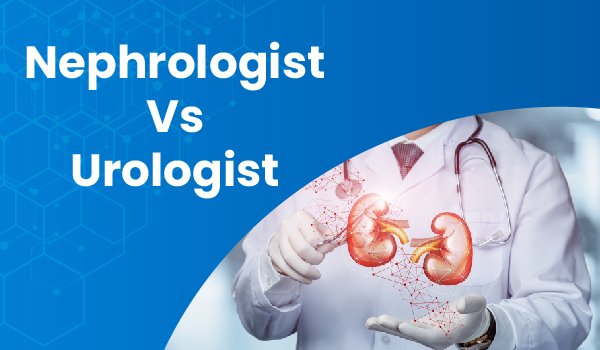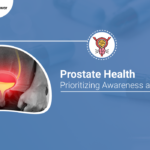Table of Contents
Urinary Tract Infections
Thousands and millions of people are influenced by the effects of urinary tract infections worldwide. It is reported that UTIs come at the second position in the list of the most common infection types in the human body. This is supported by the fact that UTI affects at least 8 million people in developed countries which makes it one of the most common urologic conditions. The female gender happens to be the most susceptible people to UTIs. This can also be proven by the statistical fact that at least 60 percent of women feel the symptoms of UTIs at least once in their lifetime. People don’t usually get admitted to the hospital for this urologic condition, but some elderly people get hospitalized because of the severe symptoms of UTI. These statistics highlight the need for prompt and effective diagnosis and treatment of UTIs to prevent complications and improve quality of life.
Urinary tract infection (UTI) Symptoms:
- Feeling the sensation of pain and itchy while urinating
- Unusual urgency to urinate
- Passing frequent, small amounts of urine
- Cloudy urine with obnoxious order
- Haematuria
- Persistent pain in the lower back
- Inexplicable tiredness
- Chills and fever
Causes of Urinary Tract Infection(UTI):
Main cause: UTIs are mainly caused by the entry of bacteria into the bladder via the urethra.
Secondary causes:
- Sexual activity. Unprotected sexual intercourse
- Menopause
- Unsuitable contraception
- Obstacles in the flow of urine
- Structural anomalies of the urinary tract
- Weak immunity
Diagnostic procedures:
- Physically examining the patient
- Urine test
- Culture test
- Imaging tests including X-rays, CT scans, or ultrasound)
Why is it Important to see a Urologist for UTI?
- A urologist is a specialist in the urinary tract and reproductive systems.
- They have the experience and knowledge to accurately diagnose and treat UTIs.
- Urologists can also determine if there are underlying conditions contributing to UTIs.
Treatment for UTIs include
- Medication including:
- Antibiotics
- Pain relievers
- probiotics
- Precautions such as:
- Avoiding irritants
- Drinking plenty of water
- Wiping front to back after using the bathroom
- Urinating regularly
- Using a heating pad to get relieved
There is not standard treatment for UTI as it depends upon the severity and causes of the condition. This is the reason for seeking a good healthcare practitioner for getting suitable treatment.
Erectile dysfunction
ED not only affects a man’s physical ability to have sexual intercourse, but it can also have a significant impact on his mental health. ED can lead to decreased self-esteem, feelings of shame and guilt, and a decline in overall quality of life. This can result in decreased relationship satisfaction and even lead to depression and anxiety.
The issue of ED is not limited to a particular region or country. In fact, it is a global health concern affecting millions of men worldwide. A worldwide study estimated that the prevalence of ED ranges from 5% to 30% depending on the population and definition used. The World Health Organization (WHO) estimates that ED affects more than 150 million men worldwide, and this number is expected to increase as the population ages.
Moreover, in many cultures, ED is still considered a taboo subject, and many men are reluctant to discuss their symptoms with their healthcare providers. This can result in a delay in seeking treatment and can lead to further deterioration of the man’s mental and sexual health.
As healthcare providers, it is important that we educate our patients about ED and the various treatment options available. By breaking down the barriers of stigma and increasing awareness, we can help improve the quality of life for those affected by this condition and promote overall sexual health
Erectile Dysfunction (ED) Symptoms:
- Not being able to retain or achieve penis erection during sexual intercourse.
- Erection not being hard
- Very low libido
To understand the symptoms of this condition, one must consider the following example:
- A man who previously had no problems getting and maintaining an erection finds that he can no longer achieve an erection, or it is not firm enough for sexual intercourse.
- A man notices a decrease in his sexual drive or libido.
Causes:
Main Causes:
- Heart-related conditions (e.g. heart attack, stroke)
- Unregulated sugar levels
- Neurological condition (e.g. Parkinson’s disease, multiple sclerosis)
- Imbalanced hormones (e.g. low testosterone)
- Peyronie’s disease (a condition that causes the penis to bend or curve)
Secondary Causes:
- Factors affecting psychology (e.g. stress, anxiety, depression)
- Consumption of alcohol, tobacco, and drugs)
- Intaking Medicine such as blood pressure drugs, antidepressants, etc.
- Operations related to prostate cancer treatment, spinal cord injury
Diagnosis:
- Urological physical examination
- Evaluation of medical history
- Blood examination
- Nerve function tests
- Ultrasound in order to check for the urine flow
- Psychoanalysis
Importance of a urologist:
- A urologist is a specialist who is trained to diagnose and treat conditions related to the urinary tract and male reproductive system, including ED.
- A urologist can provide a thorough evaluation and determine the underlying cause of ED, which is important for effective treatment.
- A urologist can also rule out any underlying medical conditions that may be contributing to ED and provide appropriate referrals for additional tests or treatments.
Treatment:
- Changes in lifestyle such as exercising regularly, shifting to a good diet, quitting smoking and alcohol consumption)
- Medicines including phosphodiesterase type 5 inhibitors (PDE5 inhibitors), testosterone replacement therapy)
- Vacuum erection devices (VEDs)
- Intraurethral pellets
- Penile injections
- Penile operation
- Psychoanalysis therapy
Conclusion
It cannot be stressed enough how important it is to determine the underlying cause of urologic conditions, including erectile dysfunction and UTI. Knowing the root urologic conditions causes is essential to provide the most effective and suitable treatment. Without a proper diagnosis, patients may be prescribed treatments that do not address the underlying problem, leading to a cycle of ineffective treatments and frustration. Furthermore, underlying medical conditions, such as cardiovascular disease or diabetes, can be contributing factors to urologic conditions, and if left untreated, can have serious health consequences. So to get the proper care, in case you are in search of any urological treatments, contact Dr. Dushyant Pawar.





